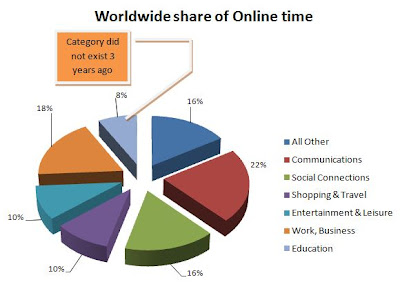Recently in a stunning announcement Atos, the European consulting firm announced that they would be moving away from corporate emails. So in the next three years Atos would officially sunset its email clients across its global locations.
I do remember my days as a B-school student where most of my time was spent mailing reports and research reports across my study group. I remember that I did almost 20-30 mails a day to the same set of people.
Collaborative efforts like research do require a lot of information exchange among members of the group. As this exchange is in the form of huge documents e-mail was the chosen form of transfer. But those were the days before the advent of social networks.
Today our Toastmasters club uses Facebook extensively to transfer documents like training materials and members list across the club. All a member has to do is to log into the Facebook page of the club to access all materials.
Again these documents are regularly updated with the latest training material and any additions there of. A similar approach is developing across research organizations who prefer to use their internal social network tools to good effect.
But I personally feel that we have not not even scratched the surface. I would like to hear from you, as to how things have changed in the research and collaboration field due to advent of social media?
I do remember my days as a B-school student where most of my time was spent mailing reports and research reports across my study group. I remember that I did almost 20-30 mails a day to the same set of people.
Collaborative efforts like research do require a lot of information exchange among members of the group. As this exchange is in the form of huge documents e-mail was the chosen form of transfer. But those were the days before the advent of social networks.
 |
| Connecting - Young Users via Social Media V/s Older users via Email |
Again these documents are regularly updated with the latest training material and any additions there of. A similar approach is developing across research organizations who prefer to use their internal social network tools to good effect.
But I personally feel that we have not not even scratched the surface. I would like to hear from you, as to how things have changed in the research and collaboration field due to advent of social media?


Hi Viral & Vikram,I have been experimenting with social networking as a peer learning and feedback tool for the past two years. The ability to create closed and hidden groups facilitates a comfortable space for students to confidently share and question. The ability for the student to join the group without 'befriending' the lecturer or other students assists the privacy issues. It also offers an additional communication area outside the class to engage in discussions on feedback and module specific content.
ReplyDeleteOver the past two years, I have experimented with integrating social networking into the module workflow and I have found that the social impact, sharing of knowledge and access to faster feedback has lead to an increase in class morale, retention and overall performance of the group. There are still issues with ownership however, that need to be addressed in future, but the positives far out way the negatives, IF managed correctly.
Hi Padriac
ReplyDeleteI agree, the concept of closed and open forums have greatly enhanced the effectiveness of social networks as a education tool.
Its great to see some good examples and experiences.
Thanks
Doc